The Founding Fathers on Party Strife (Quotes)
George Washington
Let me … warn you in the most solemn manner against the baneful effects of the spirit of party.
~ George Washington, Farewell Address, 19 September 1796.
The alternate domination of one faction over another, sharpened by the spirit of revenge, natural to party dissension, which in different ages and countries has perpetrated the most horrid enormities, is itself a frightful despotism.
~ George Washington, Farewell Address, 19 September 1796.
The alternate triumphs of different parties … make the public administration the mirror of the ill-concerted and incongruous projects of faction, rather than the organ of consistent and wholesome plans digested by common counsels.
~ George Washington, Farewell Address, 19 September 1796.
The common and continual mischiefs of the spirit of party are sufficient to make it the interest and duty of a wise people to discourage and restrain it.
~ George Washington, Farewell Address, 19 September 1796.
[The spirit of party] serves always to distract the public councils and enfeeble the public administration. It agitates the community with ill-founded jealousies and false alarms, kindles the animosity of one part against another.
~ George Washington, Farewell Address, 19 September 1796.
[The spirit of party] opens the door to foreign influence and corruption, which finds a facilitated access to the government itself through the channels of party passions.
~ George Washington, Farewell Address, 19 September 1796.
All combinations and associations, under whatever plausible character, with the real design to direct, control, counteract, or awe the regular deliberation and action of the constituted authorities, are destructive of this fundamental principle, and of fatal tendency. They serve to organize faction, to give it an artificial and extraordinary force; to put, in the place of the delegated will of the nation the will of a party, often a small but artful and enterprising minority of the community.
~ George Washington, Farewell Address, 19 September 1796.
However combinations or associations of the above description may now and then answer popular ends, they are likely, in the course of time and things, to become potent engines, by which cunning, ambitious, and unprincipled men will be enabled to subvert the power of the people and to usurp for themselves the reins of government.
~ George Washington, Farewell Address, 19 September 1796.
The unity of government which constitutes you one people is … a main pillar in the edifice of your real independence, the support of your tranquility at home, your peace abroad; of your safety; of your prosperity; of that very liberty which you so highly prize. But … it is easy to foresee that, from different causes and from different quarters, much pains will be taken, many artifices employed to weaken in your minds the conviction of this truth; … this is the point in your political fortress against which the batteries of internal and external enemies will be most constantly and actively (though often covertly and insidiously) directed.
~ George Washington, Farewell Address, 19 September 1796.
It is of infinite moment that you should properly estimate the immense value of your national union to your collective and individual happiness; that you should cherish a cordial, habitual, and immovable attachment to it; accustoming yourselves to think and speak of it as of the palladium of your political safety and prosperity; watching for its preservation with jealous anxiety; discountenancing whatever may suggest even a suspicion that it can in any event be abandoned; and indignantly frowning upon the first dawning of every attempt to alienate any portion of our country from the rest, or to enfeeble the sacred ties which now link together the various parts.
~ George Washington, Farewell Address, 19 September 1796.
![]()
John Adams
There is nothing which I dread so much as a division of the republic into two great parties, each arranged under its leader, and concerting measures in opposition to each other. This, in my humble apprehension, is to be dreaded as the greatest political evil under our Constitution.
~ John Adams, Letter to Jonathan Jackson, 2 October 1780. In: Charles Francis Adams (ed.), The Works of John Adams, Vol. 9, Boston, 1854. pp. 510-11.
Abuse of words has been the great instrument of sophistry and chicanery, of party, faction, and division of society.
~ John Adams, Letter to J. H. Tiffany, 31 March 1819. In: Charles Francis Adams (ed.), The Works of John Adams, Vol. 10, Boston, 1856. pp. 377-8.
![]()
Thomas Jefferson
The greatest good we can do our country is to heal its party divisions, and make them one people.
~ Thomas Jefferson, To John Dickinson, 23 July 1801
To render us again one people, acting as one nation, should be the object of every man really a patriot. I am satisfied it can be done, and I own that the day which should convince me of the contrary would be the bitterest of my life.
~ Thomas Jefferson, To Thomas McKean, 24 July 1801
I have never thought that a difference in political, any more than in religious opinions, should disturb the friendly intercourse of society. There are so many other topics on which friends may converse and be happy, that it is wonderful they would select, of preference, the only one on which they cannot agree.
~ Thomas Jefferson, To David Campbell, 28 January 1810
I hope we shall once more see harmony restored among our citizens, and an entire oblivion of past feuds. Some of the leaders who have most committed themselves cannot come into this. But I hope the great body of our fellow citizens will do it. I will sacrifice everything but principle to procure it.
~ Thomas Jefferson, To Samuel Adams, 29 March 1801
The spirit of 1776 is not dead. It has only been slumbering. The body of the American people is substantially republican. But their virtuous feelings have been played on by some fact with more fiction; they have been the dupes of artful manoeuvres, and made for a moment to be willing instruments in forging chains for themselves.
~ Thomas Jefferson, To Thomas Lomax, 12 March 1799
Difference of opinion leads to enquiry, and enquiry to truth.
~ Thomas Jefferson, To Peter H. Wendover (Draft), 13 March 1815
The public judgment will correct false reasonings and opinions, on a full hearing of all parties.
~ Thomas Jefferson, Second Inaugural Address, 4 March 1805
I may sometimes differ in opinion from some of my friends, from those whose views are as pure and sound as my own. I censure none, but do homage to every one’s right of opinion.
~ Thomas Jefferson, To William Duane, 28 March 1811
I see the necessity of sacrificing our opinions sometimes to the opinions of others for the sake of harmony.
~ Thomas Jefferson, To Francis Eppes, 4 July 1790
I respect the right of free opinion too much to urge an uneasy pressure on them. Time and advancing science will ripen us all in its course, and reconcile all to wholesome and necessary changes.
~ Thomas Jefferson, To Samuel Kercheval, 5 September 1824
If we do not learn to sacrifice small differences of opinion, we can never act together. Every man cannot have his way in all things. If his own opinion prevails at some times, he should acquiesce on seeing that of others preponderate at other times. Without this mutual disposition we are disjointed individuals but not a society.
~ Thomas Jefferson, To John Dickinson, 23 July 1801
To the principles of union I sacrifice all minor differences of opinion. These, like differences of face, are a law of our nature, and should be viewed with the same tolerance.
~ Thomas Jefferson, To William Duane, 25 July 1811
I never submitted the whole system of my opinions to the creed of any party of men whatever, in religion, in philosophy, in politics, or in anything else, where I was capable of thinking for myself. Such an addiction is the last degradation of a free and moral agent.
~ Thomas Jefferson, To Francis Hopkinson, 13 March 1789
The happiness of society depends so much on preventing party spirit from infecting the common intercourse of life, that nothing should be spared to harmonize and amalgamate the two parties in social circles.
~ Thomas Jefferson, To William C. Claiborne, July 1801
You will soon find that so inveterate is the rancor of party spirit among us, that nothing ought to be credited but what we hear with our own ears. If you are less on your guard than we are here, at this moment, the designs of the mischief-makers will not fail to be accomplished, and brethren and friends will be made strangers and enemies to each other,
~ Thomas Jefferson, To James Monroe, March 1808
I deplore with you the putrid state into which our newspapers have passed, and the malignity, the vulgarity, and mendacious spirit of those who write for them. … This has in a great degree been produced by the violence and malignity of party spirit.
~ Thomas Jefferson, To Walter Jones, January 1814
If we can once more get social intercourse restored to its pristine harmony, I shall believe we have not lived in vain.
~ Thomas Jefferson, To Thomas Lomax, 25 February 1801
Let us, then, fellow-citizens, unite with one heart and one mind. Let us restore to social intercourse that harmony and affection without which liberty and even life itself are but dreary things.
~ Thomas Jefferson, First Inaugural Address, 4 March 1801
Every difference of opinion is not a difference of principle. We have called by different names brethren of the same principle. We are all republicans, we are all federalists.
~ Thomas Jefferson, First Inaugural Address, 4 March 1801
It will be a great blessing to our country if we can once more restore harmony and social love among its citizens. I confess, as to myself, it is almost the first object of my heart, and one to which I would sacrifice everything but principle.
~ Thomas Jefferson, To Elbridge Gerry, 29 March 1801
A difference in politics should never be permitted to enter into social intercourse, or to disturb its friendships, its charities or justice.
~ Thomas Jefferson, To Henry Lee, 10 August 1824
![]()
Alexander Hamilton
Nothing could be more ill-judged than that intolerant spirit which has, at all times, characterized political parties.
~ Alexander Hamilton, The Federalist #1, 27 October 1787.
We are attempting, by this Constitution, to abolish factions, and to unite all parties for the general welfare.
~ Alexander Hamilton, Debates in the Convention of the State of New York on the Adoption of the Federal Constitution, Tuesday, 25 June 1788. In: Henry Cabot Lodge, ed., The Works of Alexander Hamilton (Federal Edition), Vol. 2, New York, 1904, p. 57.
![]()
James Madison
A zeal for different opinions concerning religion, concerning government, and many other points, as well of speculation as of practice; an attachment to different leaders ambitiously contending for pre-eminence and power; or to persons of other descriptions whose fortunes have been interesting to the human passions, have, in turn, divided mankind into parties, inflamed them with mutual animosity, and rendered them much more disposed to vex and oppress each other than to co-operate for their common good.
~ James Madison, The Federalist #10, 22 November 1787
So strong is this propensity of mankind to fall into mutual animosities, that where no substantial occasion presents itself, the most frivolous and fanciful distinctions have been sufficient to kindle their unfriendly passions and excite their most violent conflicts.
~ James Madison, The Federalist #10, 22 November 1787
Hearken not to the unnatural voice which tells you that the people of America, knit together as they are by so many cords of affection, can no longer live together as members of the same family; can no longer continue the mutual guardians of their mutual happiness…. No, my countrymen, shut your ears against this unhallowed language. Shut your hearts against the poison which it conveys; the kindred blood which flows in the veins of American citizens, the mingled blood which they have shed in defense of their sacred rights, consecrate their Union, and excite horror at the idea of their becoming aliens, rivals, enemies.
~ James Madison, The Federalist #14, 30 November 1787
![]()
Benjamin Franklin
We must indeed hang together, or, most assuredly, we shall all hang separately.
~ Benjamin Franklin, Statement at the signing of the Declaration of Independence (4 July 1776).
Better is a little with content than much with contention.
~ Benjamin Franklin, Poor Richard’s Almanack
Clean your finger before pointing it at others.
~ Benjamin Franklin, Poor Richard’s Almanack
E’er you remark another’s sin, bid your own conscience look within.
~ Benjamin Franklin, Poor Richard’s Almanack
The proud hate pride — in others.
~ Benjamin Franklin, Poor Richard’s Almanack
Whate’er’s begun in anger ends in shame.
~ Benjamin Franklin, Poor Richard’s Almanack
Love your enemies, for they tell you your faults.
~ Benjamin Franklin, Poor Richard’s Almanack
Anger is never without a reason but seldom with a good one.
~ Benjamin Franklin, Poor Richard’s Almanack
The end of passion is the beginning of repentance.
~ Benjamin Franklin, Poor Richard’s Almanack
“The small progress we have made after 4 or 5 weeks close attendance and continual reasonings with each other, our different sentiments on almost every question, several of the last producing as many noes as ayes, is methinks a melancholy proof of the imperfection of the human understanding. We indeed seem to feel our own want of political wisdom, since we have been running all about in search of it. We have gone back to ancient history for models of government, and examin’d the different forms of those republics, which, having been originally form’d with the seeds of their own dissolution, now no longer exist. And we have view’d modern states all ’round Europe, but find none of their constitutions suitable to our circumstances.
In this situation of this Assembly, groping, as it were, in the dark, to find political truth, and scarce able to distinguish it when presented to us, how has it happened, Sir, that we have not, hitherto once thought of humbly applying to the Father of Lights to illuminate our understandings? In the beginning of the contest with Britain, when we were sensible of danger, we had daily prayers in this room for the divine protection. Our prayers, Sir, were heard; — and they were graciously answered. All of us, who were engag’d in the struggle, must have observ’d frequent instances of a superintending Providence in our favour. To that kind Providence we owe this happy opportunity of consulting in peace on the means of establishing our future national felicity. And have we now forgotten that powerful Friend? or do we imagine we no longer need its assistance? I have lived, Sir, a long time; and the longer I live, the more convincing proofs I see of this Truth, That God governs in the affairs of men! — And if a sparrow cannot fall to the ground without his notice, is it probable that an empire can rise without his aid? — We have been assured, Sir, in the sacred writings, that “except the Lord build the house, they labour in vain that build it.” I firmly believe this; — and I also believe that without His concurring aid, we shall succeed in this political building no better than the builders of Babel: We shall be divided by our little partial local interests, our projects will be confounded and we ourselves shall become a reproach and a byword down to future Ages. And what is worse, Mankind may hereafter, from this unfortunate instance, despair of establishing government by human wisdom, and leave it to chance, war and conquest.
I therefore beg leave to move: That henceforth prayers, imploring the assistance of Heaven, and its blessing on our deliberations, be held in this Assembly every morning before we proceed to business; and that one or more of the clergy of this city be requested to officiate in that service.”
~ Benjamin Franklin, Motion for Prayers in the Constitutional Convention (28 June 1787). [Note: The Convention adjourned without voting on Franklin’s motion.]
“Steele, a Protestant in a dedication tells the Pope, that the only difference between our two Churches in their opinions of the certainty of their doctrine, is, the Romish Church is infallible, and the Church of England is never in the wrong. But tho’ many private persons think almost as highly of their own infallibility, as of that of their sect, few express it so naturally as a certain French lady, who in a little dispute with her sister, said, I don’t know how it happens, sister, but I meet with nobody but myself that’s always in the right.
In these sentiments, Sir, I agree to this Constitution, with all its faults, if they are such; because I think a general government necessary for us, and there is no form of government but what may be a blessing to the people if well administered; and I believe farther that this is likely to be well administered for a course of years, and can only end in despotism, as other forms have done before it, when the people shall become so corrupted as to need despotic government, being incapable of any other. I doubt too whether any other Convention we can obtain, may be able to make a better Constitution: For when you assemble a number of men, to have the advantage of their joint wisdom, you inevitably assemble with those men all their prejudices, their passions, their errors of opinion, their local interests, and their selfish views. From such an Assembly can a perfect production be expected? It therefore astonishes me, Sir, to find this system approaching so near to perfection as it does and I think it will astonish our enemies, who are waiting with confidence to hear that our councils are confounded, like those of the builders of Babel, and that our States are on the point of separation, only to meet hereafter for the purpose of cutting one anothers throats. Thus I consent, Sir, to this Constitution because I expect no better, and because I am not sure that it is not the best…. I hope therefore for our own sakes, as a part of the people, and for the sake of our posterity, we shall act heartily and unanimously in recommending this Constitution, wherever our influence may extend, and turn our future thoughts and endeavours to the means of having it well administered.”
~ Benjamin Franklin, Speech at the Constitutional Convention at the Conclusion of Deliberations (17 September 1787)
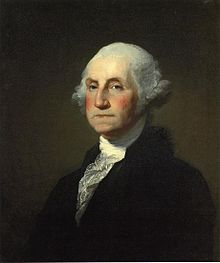
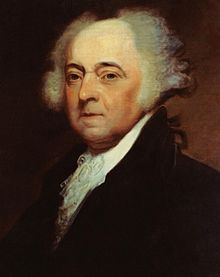
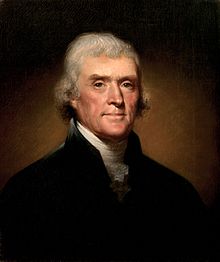
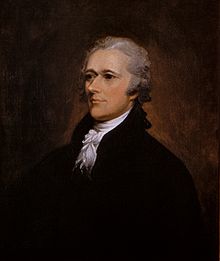
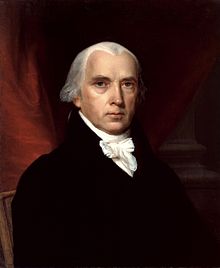
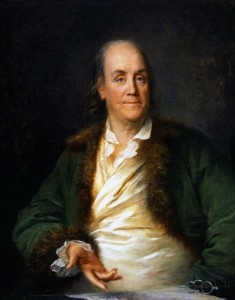
 The Immortal I
The Immortal I
[…] must wonder if the Founding Fathers ever imagined it coming to this. Well, actually, they did. Many of them suspected parties would be inevitable, wished they could be contained within single […]
10 Arguments Against NOT Voting Your Conscience - Consider, Reconsider
October 29, 2016 at 12:13 am
Reblogged this on Ryan A. Brown.
3xTripple
January 6, 2017 at 5:57 am
[…] In the US, the two-party system, which morphed into a duopoly in the late 20th century, has remained not so much the norm as the foundation of what was once intended to be representative democracy, in which parties were considered anathema. […]
This Is What's Wrong with Political Parties, Except Maybe Italy | eworldpolitics
May 1, 2018 at 8:32 am
[…] than that; it gives you the idea of republicanism and shows how important it was to avoid “factions” in which 50/50 + 1 is going to control everything and 49% have no rights. That’s not […]
What was the Founders’ Intent in Creating the Electoral College? Part 2 - The Post & Email
April 3, 2019 at 1:00 am
[…] comes with having political parties, and these warnings have proven to be right. John Adams once said, “There is nothing which I dread so much as a division of the republic into two great parties, […]
We should abolish the two-party system (Opinion) – The Mav
January 26, 2021 at 2:25 pm